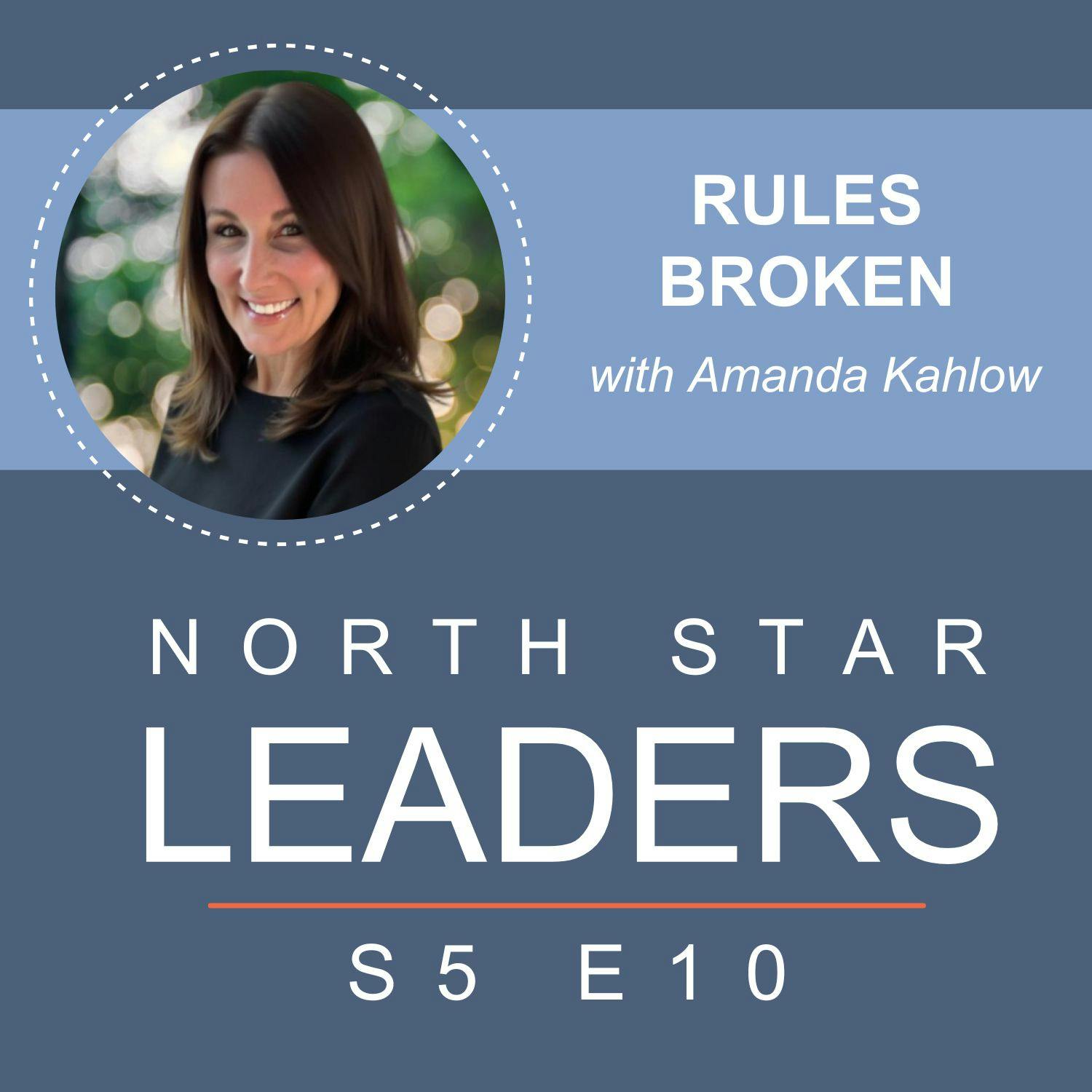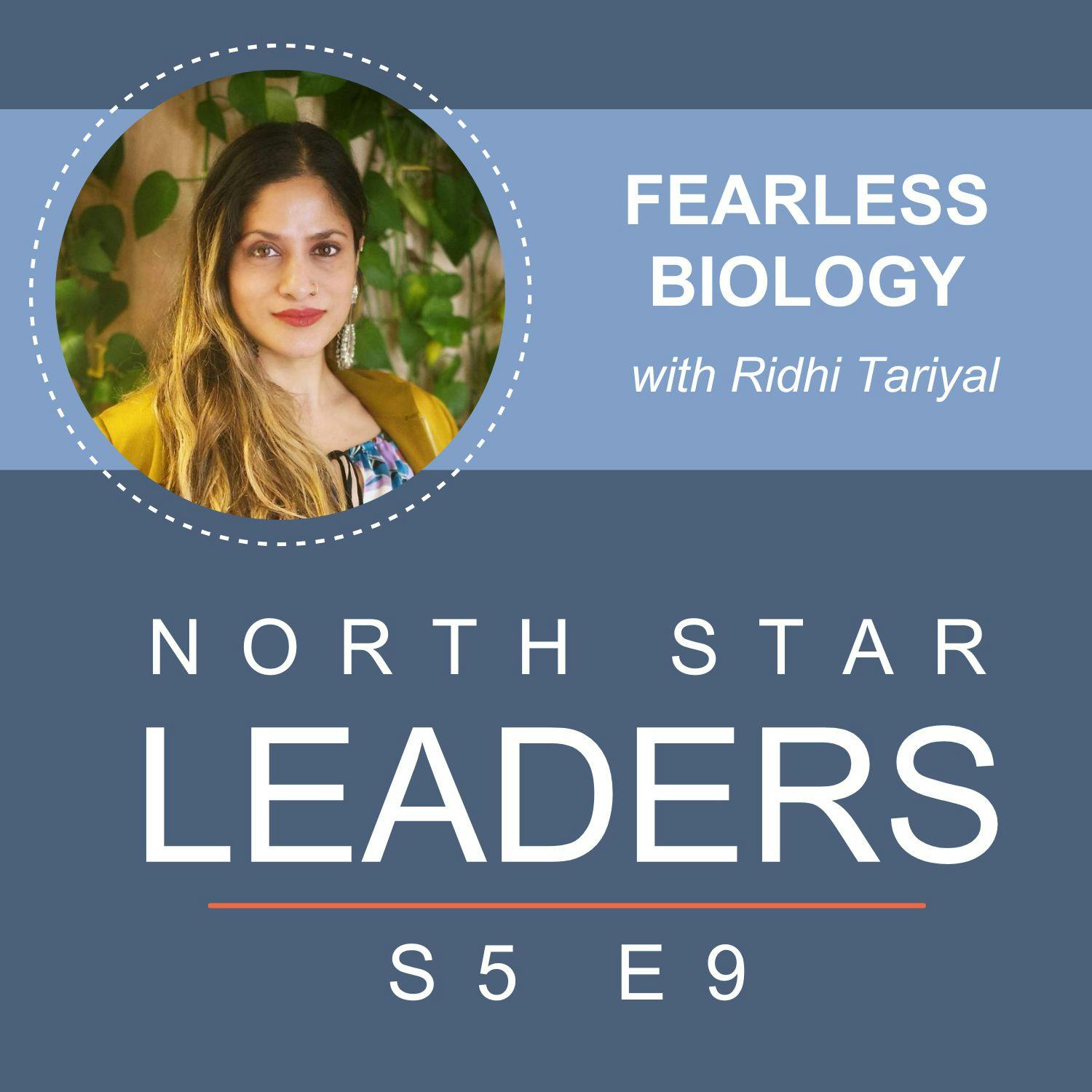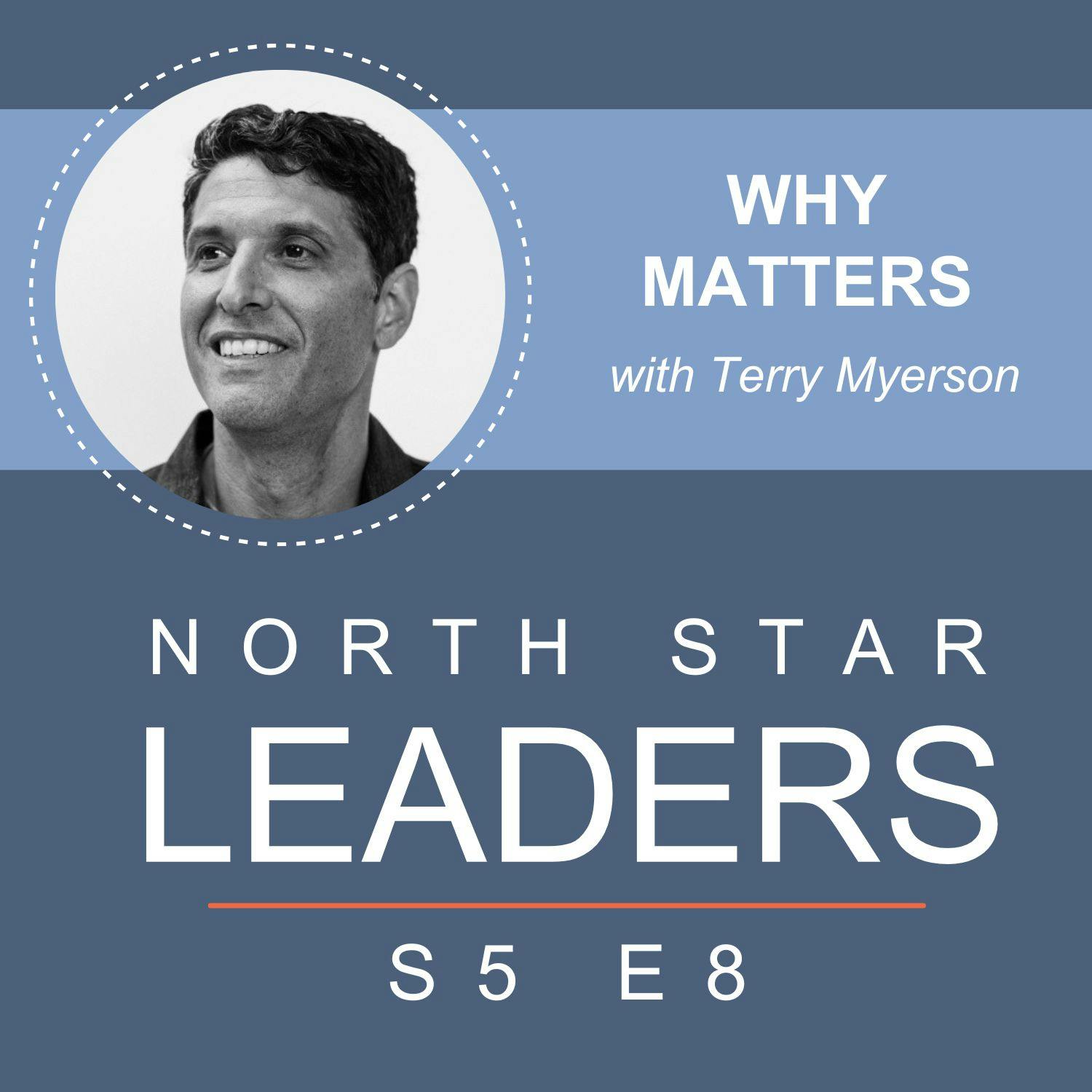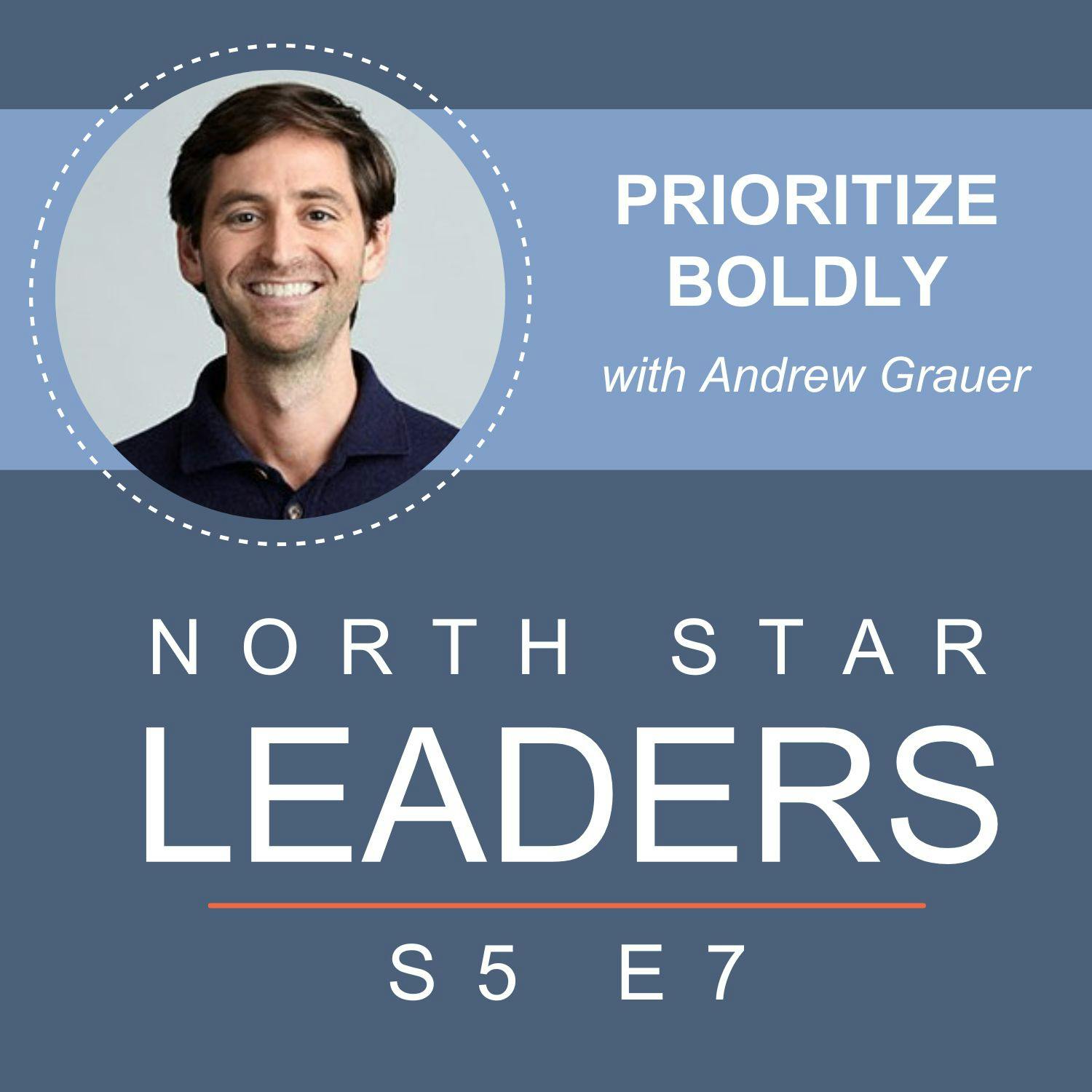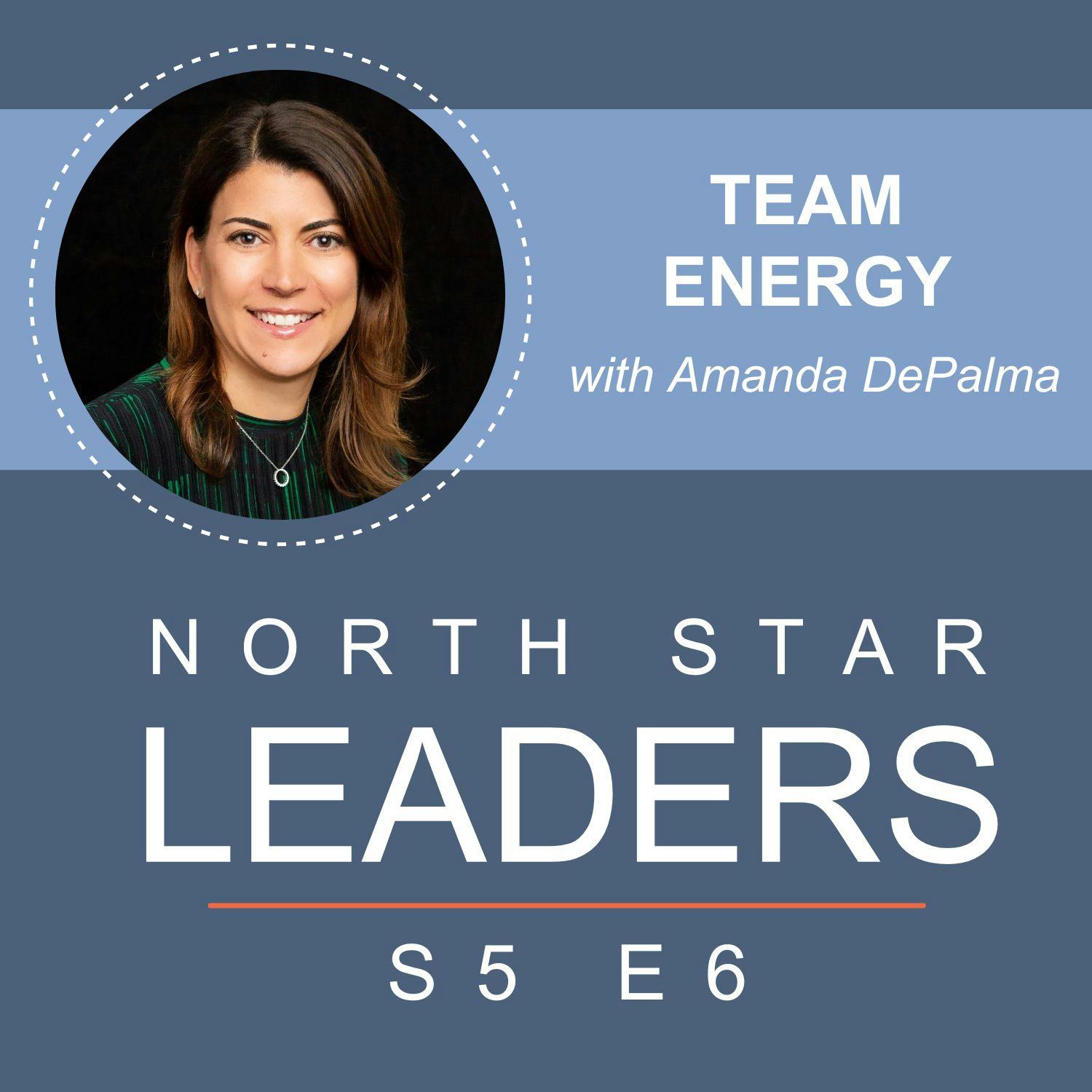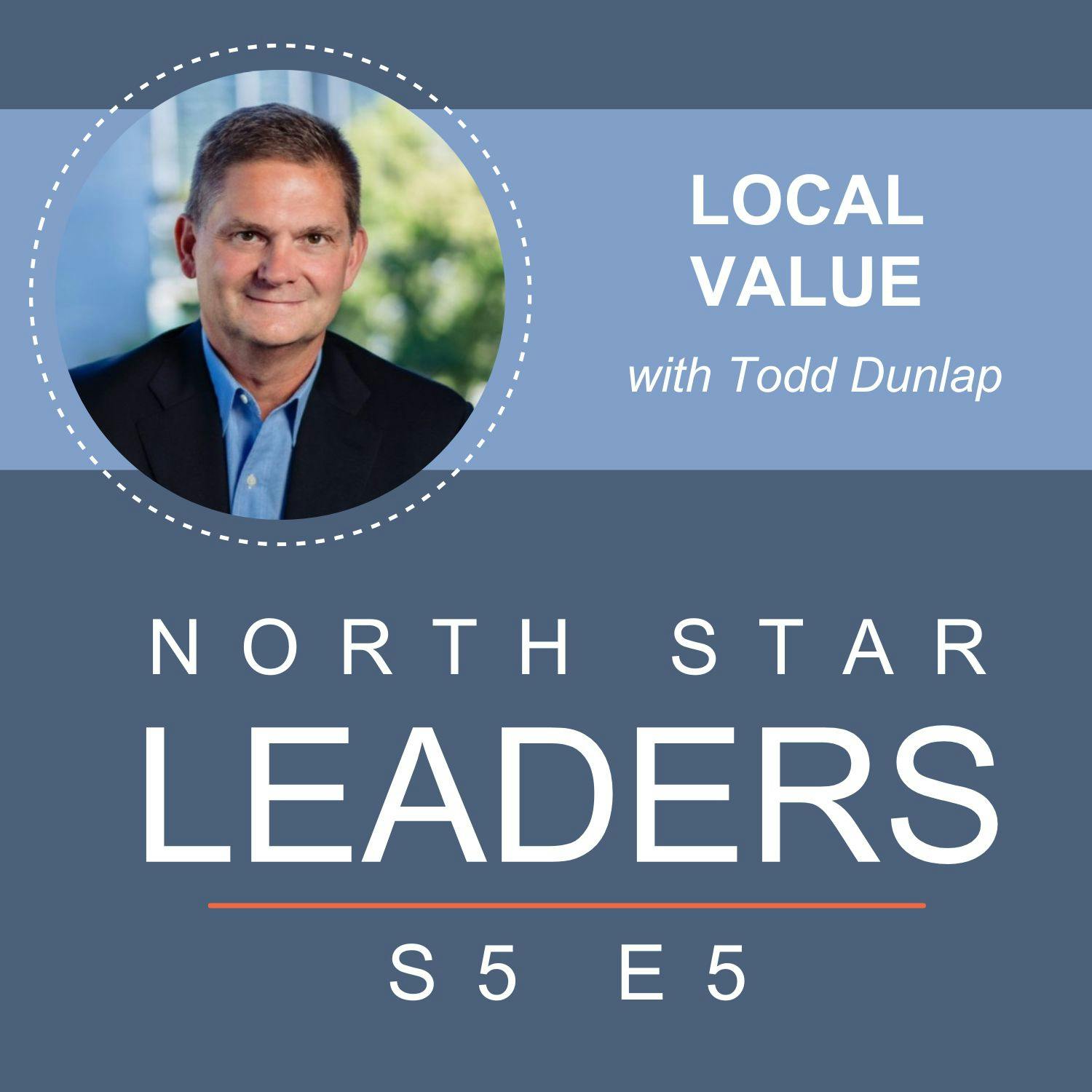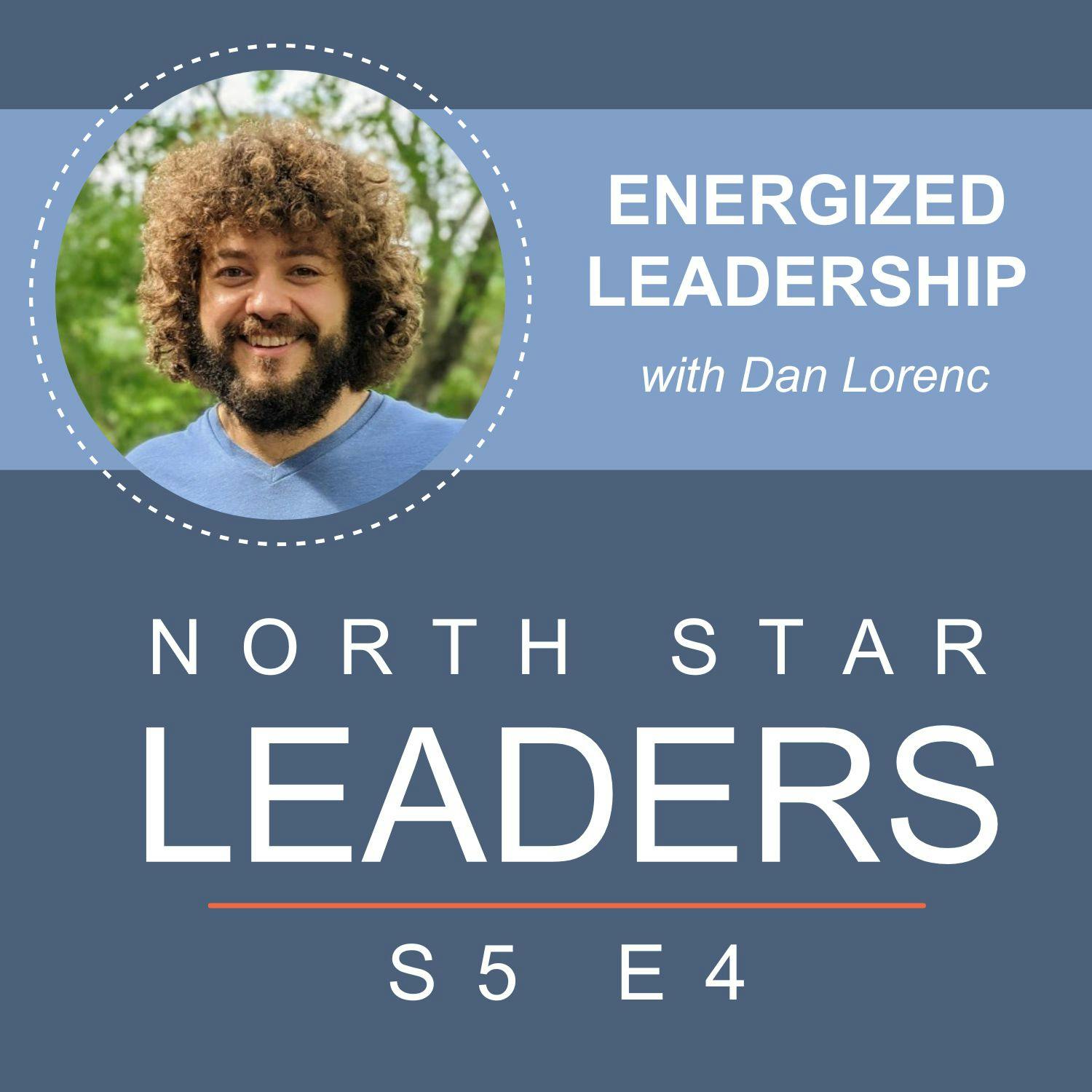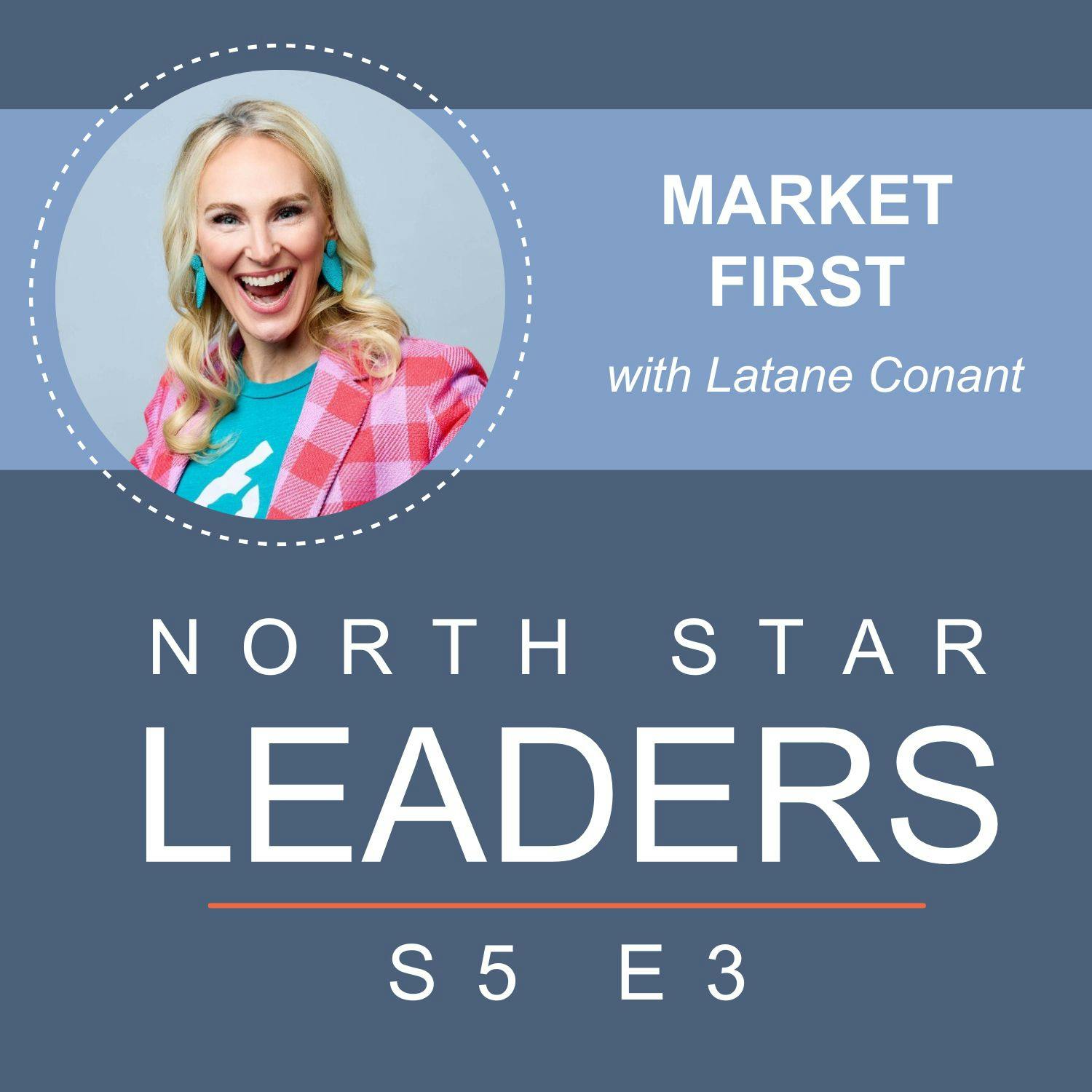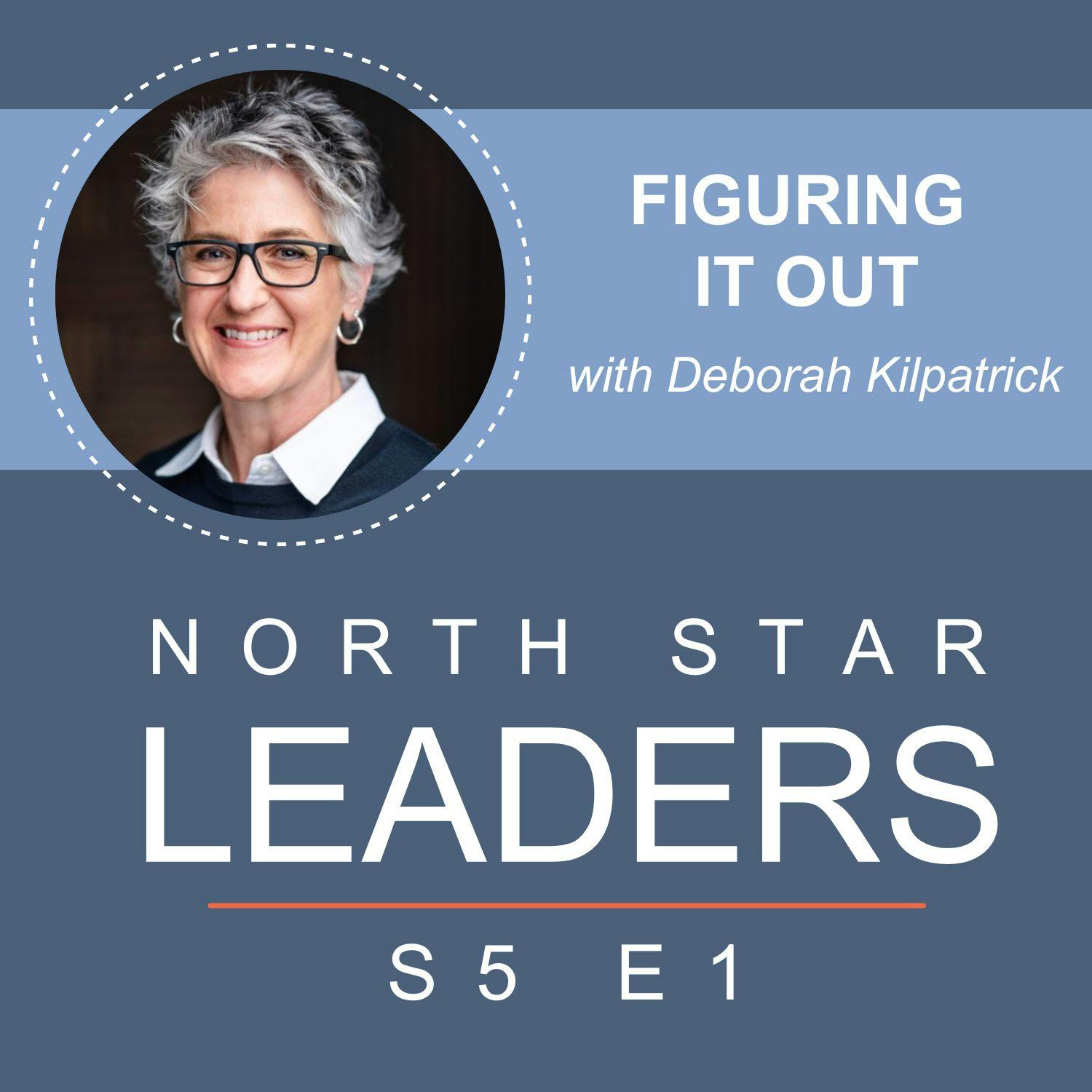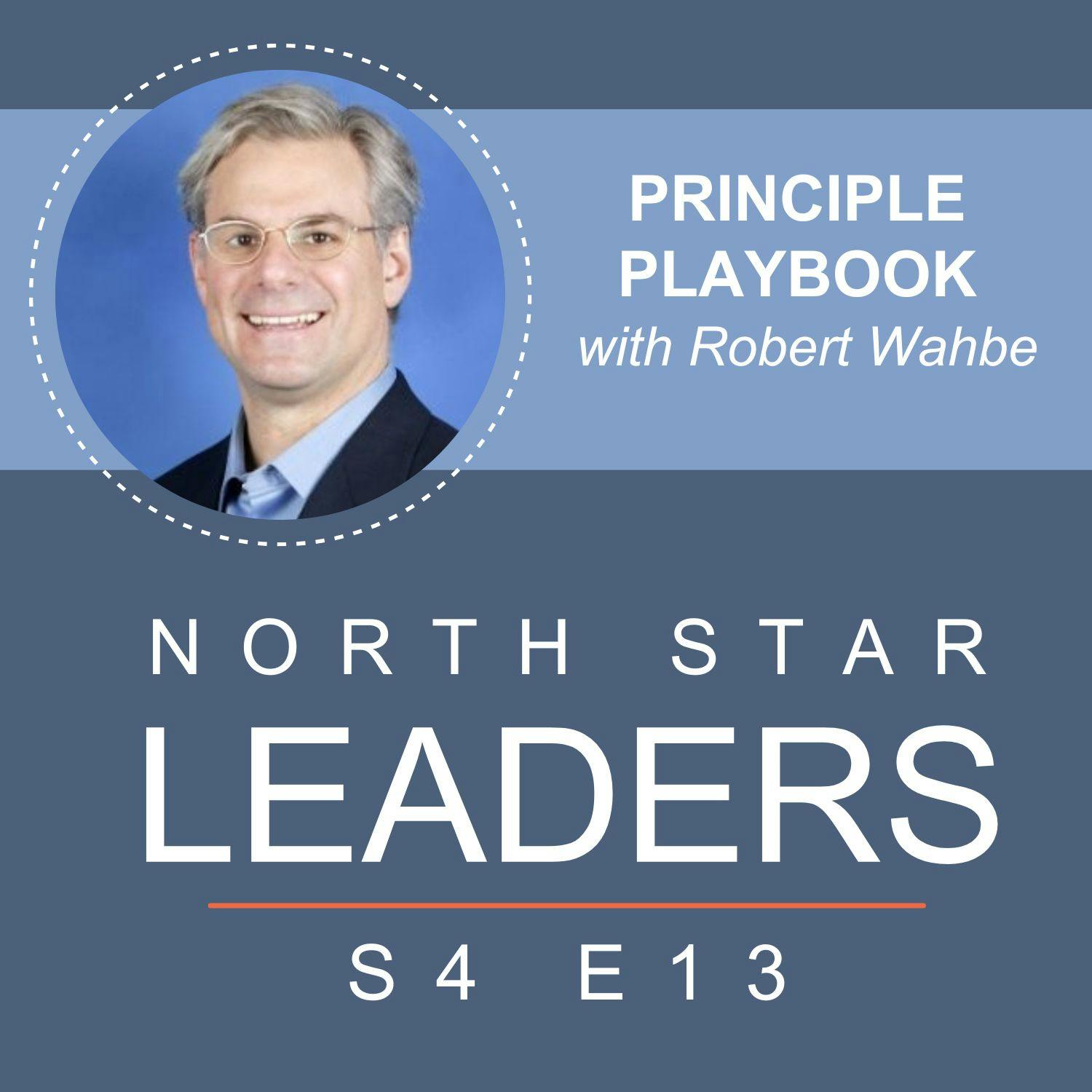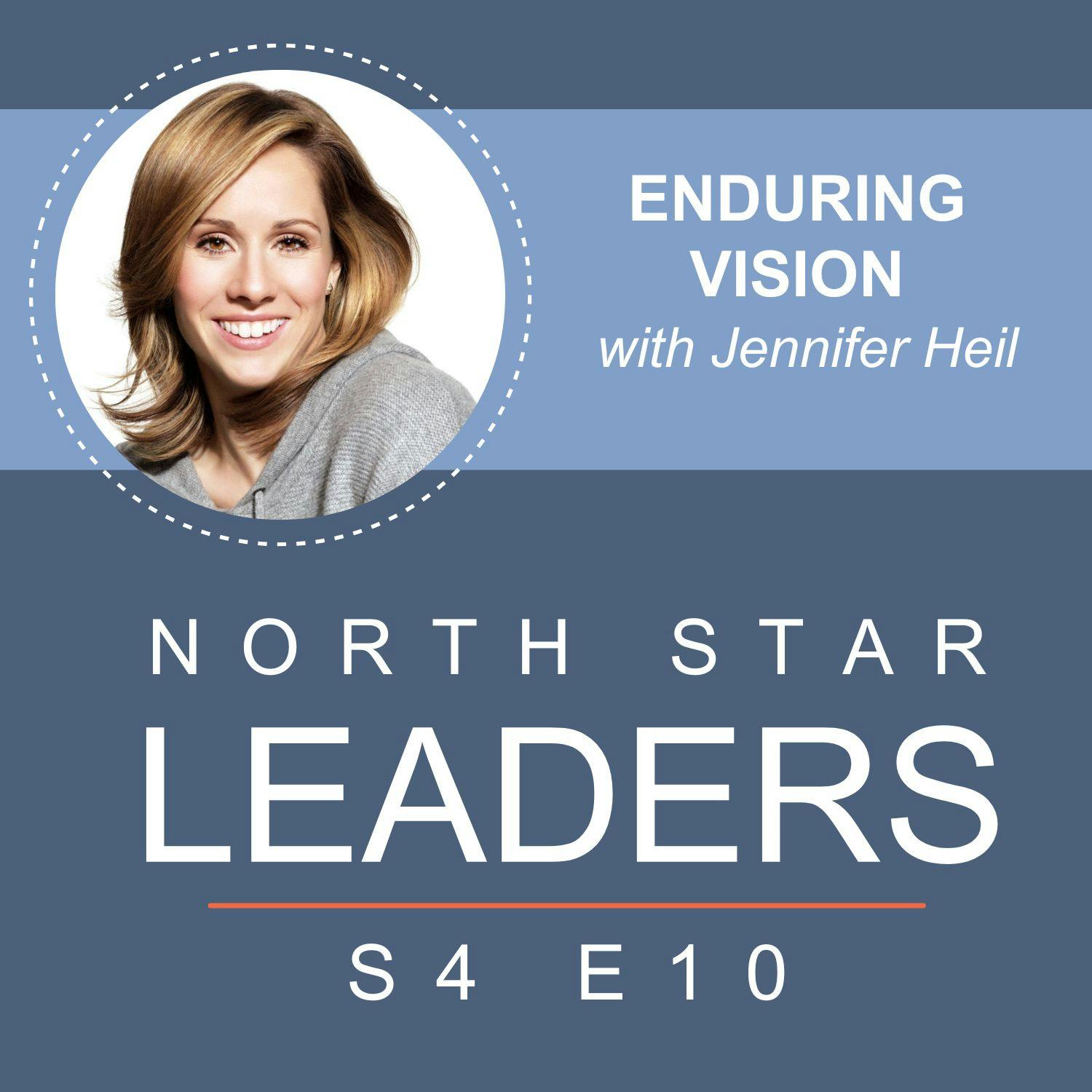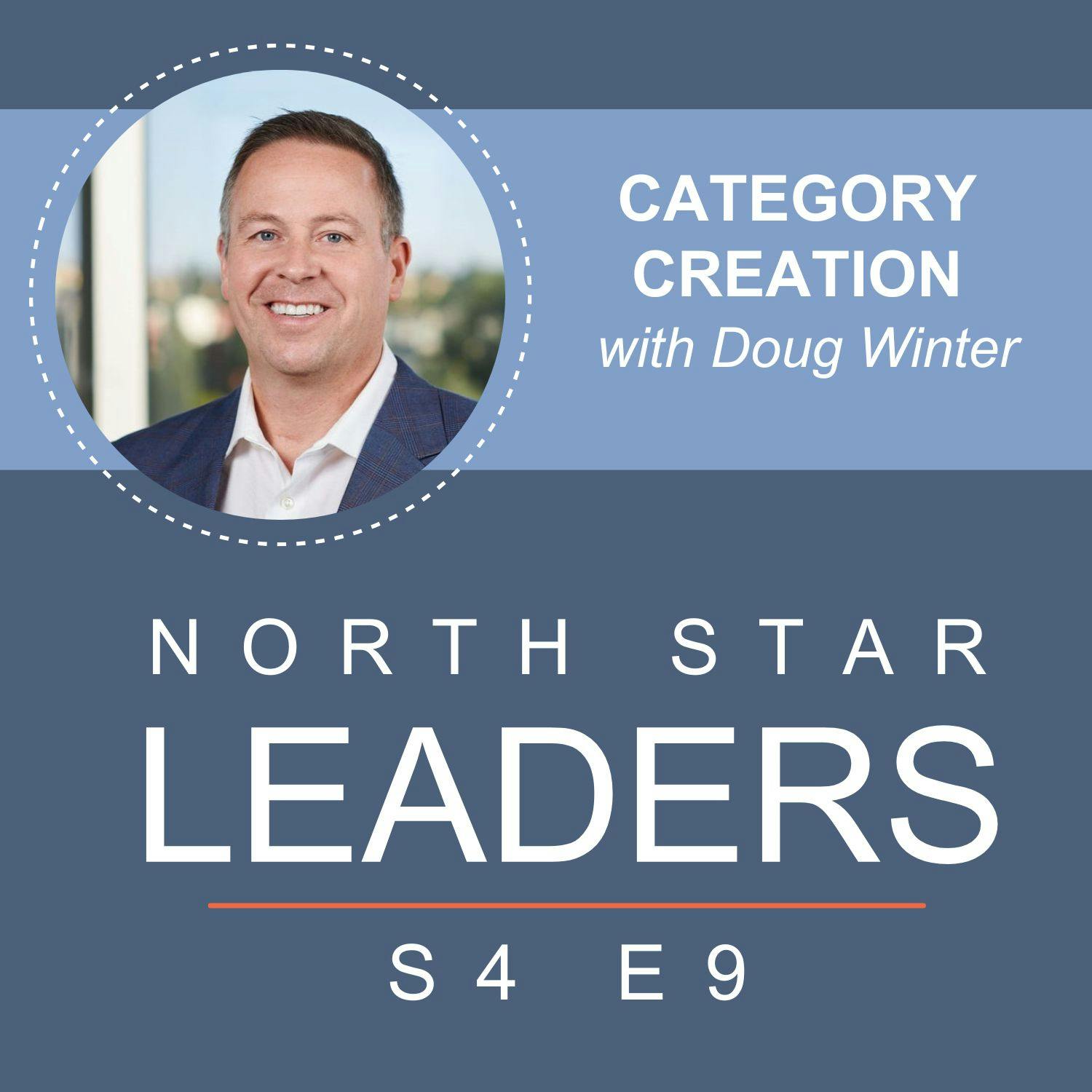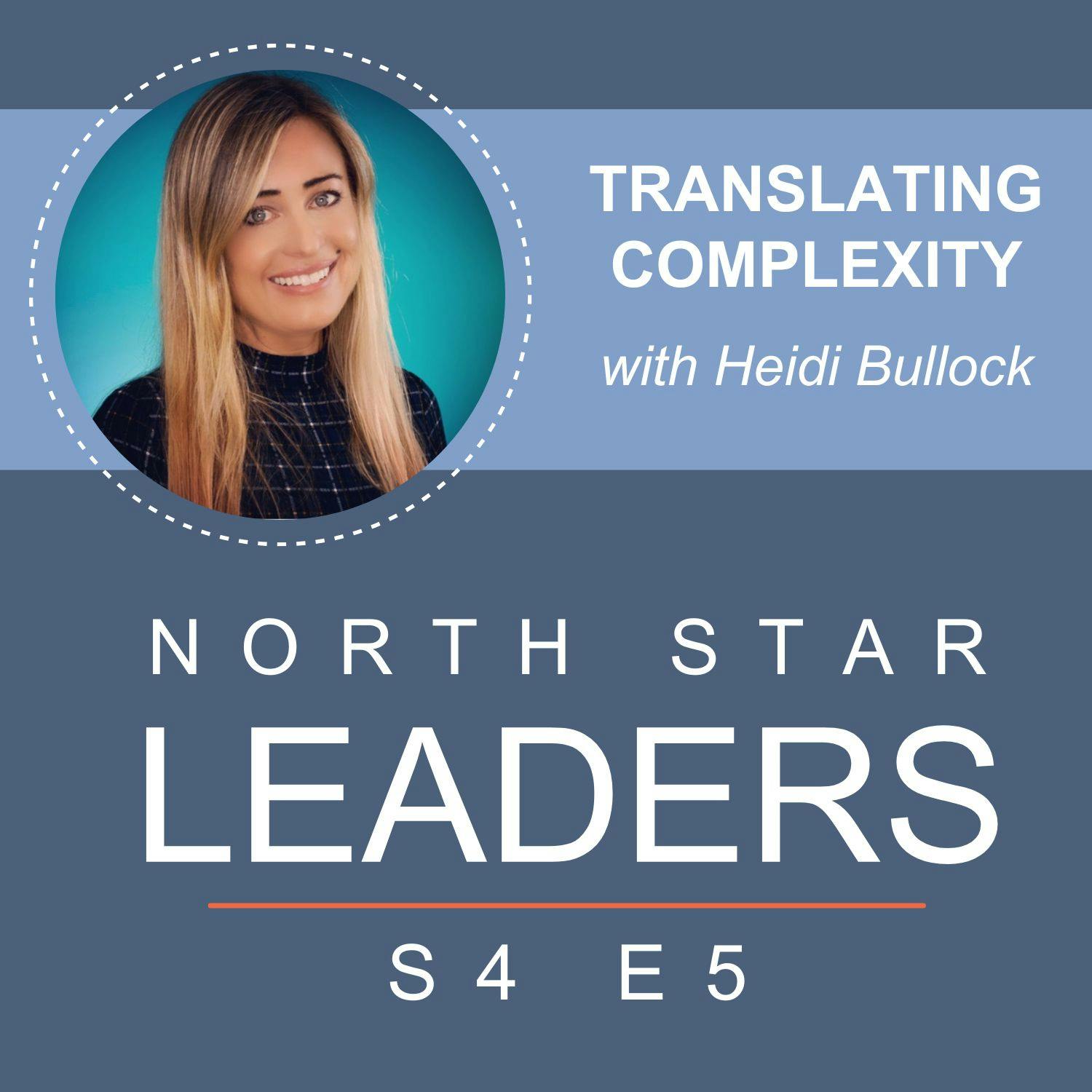Discover North Star Leaders
North Star Leaders

North Star Leaders
Author: Lindsay Pedersen
Subscribed: 0Played: 0Subscribe
Share
© 2023
Description
As a leader, how do you know where to focus? When there are a hundred possibilities, how do you direct your time, your team, your budget, your emotional energy? And - how do you step back and consider the longer term? How do you set conditions for the business to create value not just now, but for years and decades? How do you dance the tension between creating economic value now, while also serving a noble purpose?
If you wonder about these things, then this podcast is for you.
59 Episodes
Reverse
Some leaders chase certainty. Others chase challenge, purpose, and the uncomfortable edge where real growth happens. In this episode of North Star Leaders, Lindsay sits down with Amanda Kahlow, CEO of 1Mind, for a grounded, honest conversation about leadership in the age of AI - where ambition, humanity, and self-awareness all have to coexist. Amanda shares how personal mission, spiritual grounding, and radical clarity shape the way she builds companies, makes hard calls, and shows up as a leader.
You’ll hear them discuss:
Why Amanda is drawn to unachievable goals, challenge, and the highs and lows of entrepreneurship
How her upbringing shaped her resilience, values, and the way she thinks about success and family
Creating a personal mission statement and using it as a compass for leadership and life
Showing up as an authentic leader without conforming to traditional or male-dominated leadership norms
The discipline of self-reflection, including learning to pause and choose your second reaction
Rethinking go-to-market teams with AI by starting from a clean slate instead of fixing old processes
Being honest about AI replacing jobs, and how that shift could allow humans to reconnect with what makes them human
Resources:
Amanda Kahlow on 1mind | LinkedIn
Lindsay Pedersen - Contact me to tell me who you'd like to hear as a guest! | Connect with me on LinkedIn
How does a founder stay deeply hands-on without slipping into micromanagement? And what really happens when you build a company around something the world has been taught not to talk about?
In this episode, Lindsay and Ridhi Tariyal - CEO and co-founder of NextGen Jane, dive into the reality of leading a precision-medicine company in a space shaped by stigma, silence, and an explosion of new science. Ridhi brings a refreshingly candid look at writing, leadership, fundraising myths, and the changing landscape of women’s health - all while building a company that asks people to rethink what menstrual blood can teach us.
You’ll hear them discuss:
Why she insists on drafting everything herself before AI comes anywhere near it
What has (and hasn’t) changed about the stigma around menstruation over the past decade
The surprising ways investors used to redirect her pitches simply because she was a woman founder in femtech
The role menstrual blood could play in understanding the menopause transition far earlier and more precisely
How she balances being “in the mud” with letting her team actually own their work
The moment she knows she’s crossed from helpful to too involved
The work norms she refuses to adopt, even in Silicon Valley
Why raising more capital doesn’t magically reduce a founder’s stress
The emotional and practical realities of leading a company that’s creating an entirely new product category
Resources:
Ridhi Tariyal on NextGen Jane | NextGen Jane Instagram | LinkedIn
Lindsay Pedersen - Contact me to tell me who you'd like to hear as a guest! | Connect with me on LinkedIn
What happens when a tech leader decides to take on one of the hardest problems in healthcare - building a system that can actually save lives with data? How do you unite dozens of massive health systems, a pandemic, and a shared mission into one groundbreaking company?
In this episode, Lindsay sits down with Terry Myerson, CEO of Truveta and former Microsoft executive, to unpack the story of how an idea born in the chaos of 2020 became one of the most innovative healthcare data platforms in the world. Terry opens up about what it takes to lead through uncertainty, how to rally people around a clear “why,” and what he’s still learning five years into building Truveta.
You’ll hear them discuss:
How a simple but bold mission - “saving lives with data” - became the heartbeat of Truveta
Why the early days of the pandemic revealed how little usable healthcare data actually existed
The power of simplicity when trying to build momentum around a big idea
What Terry learned about leadership, culture, and purpose from his years at Microsoft
How to balance the “why, how, and what” when you’re building something brand new
The surprising parallels between leading a startup and leading a huge corporate team
Why Terry believes the best learning doesn’t come from books, but from diving in and doing the work
Resources:
Terry Myerson on Truveta | Truveta's LinkedIn | LinkedIn
Lindsay Pedersen - Contact me to tell me who you'd like to hear as a guest! | Connect with me on LinkedIn
How do you decide what to build when every day brings a hundred new possibilities? And how do you keep your focus without losing the spark of creativity?
In this episode of North Star Leaders, Lindsay talks with Andrew Grauer, CEO of Learneo, the company behind well-known brands like Course Hero, CliffNotes, and QuillBot. Andrew opens up about what it’s like to lead through rapid change, why empathy has always been at the core of his approach, and how he balances the thrill of innovation with the discipline of prioritization. They also explore the personal side of leadership - what keeps Andrew energized and how he avoids burnout after nearly two decades of building companies.
You’ll hear them discuss:
Why watching an idea go from conversation to prototype to production in record time keeps him energized as an entrepreneur
How empathy for students and professionals reveals the real problems worth solving, rather than chasing surface-level fixes
The way QuillBot is evolving from a writing tool into a broader platform for generative AI and multimodal communication
The simple decision-making framework Andrew uses to weigh priorities, risks, and opportunities when setting a roadmap
How he thinks about the tension between going deeper into one capability versus expanding wide into new product areas
The personal routines and mindset shifts that help him stay healthy, present with his family, and resilient as a leader
Resources:
Andrew Grauer on Learneo | Quillbot | LinkedIn
Lindsay Pedersen - Contact me to tell me who you'd like to hear as a guest! | Connect with me on LinkedIn
Plenty of leaders talk about collaboration. Far fewer can actually make it happen—especially when the stakes are high, and the timelines are brutal. So what’s the real difference between the buzzwords and the leaders who truly deliver?
In this episode, Lindsay sits down with Amanda DePalma, Head of Global Marketing for Ultrasound at Siemens Healthineers. Amanda shares the real stuff: how she learned to lead cross-functional teams without micromanaging, the years it took to trust her own thinking style, and the moments that shaped her commitment to mentorship and diversity. She also opens up about the role storytelling plays in healthcare, why patient impact keeps her grounded, and why the current wave of AI innovation finally feels different - and genuinely helpful - for clinicians and patients.
You'll hear them discuss:
How Amanda’s early career in every corner of marketing shaped the way she leads today
The culture of trust she builds so teams can do their best work without being over-managed
The moment she realized authenticity mattered more than mimicking the “loudest voice in the room”
Why forcing people to behave outside their natural style leads to burnout
The difference between coaching, mentoring, and sponsoring and why sponsorship changed her career
How real patient stories keep teams connected to the purpose behind the work
The global challenges clinicians face right now, from staffing shortages to long diagnostic wait times
Why AI is finally moving from buzzword to real-world impact in imaging and procedures
The possibilities opening up at the intersection of devices, imaging, and intelligent workflows
Resources:
Amanda DePalma on Siemens Healthineers | LinkedIn
Lindsay Pedersen - Contact me to tell me who you'd like to hear as a guest! | Connect with me on LinkedIn
Every box on your doorstep, every item you’re ready to toss - could those be hidden opportunities to build community? Todd Dunlap, CEO and board chair of OfferUp, thinks so. In this episode, he joins Lindsay to talk about why local marketplaces are about far more than buying and selling. For Todd, it’s about people, trust, and connection - and the leadership lessons that keep him grounded while running a fast-growing business.
You’ll hear them discuss:
How business problems across industries tend to rhyme, but the people you solve them with make all the difference
The ways OfferUp is helping communities unlock local value in goods, services, and even conversations
A simple used boat cover that turned into something life-changing for a family in need
Why Todd welcomes respectful challenge over easy harmony when building teams
His approach to decision-making: right decisions, wrong decisions, and the real risk of indecision
The “platinum rule” of leadership he picked up from his mom, and why it matters more than ever
Why his core principle is people first, even when others argue it should be profit or shareholders
Resources:
Todd Dunlap on the OfferUp | LinkedIn | OfferUp on Google Play | OfferUp on App Store
Lindsay Pedersen - Contact me to tell me who you'd like to hear as a guest! | Connect with me on LinkedIn
Selling doesn’t have to feel slimy. Open source doesn’t have to feel risky. And leadership doesn’t have to drain you. Dan Lorenc, CEO and founder of ChainGuard, has built a company - and a culture - around those beliefs.
In this episode of North Start Leadership Podcast, Dan and Lindsay dig into what it means to build a “safe source for open source,” how to lead with authenticity, and why sometimes the best way to serve customers is to take work off their plate entirely.
You’ll hear them discuss:
Why Dan, an engineer at heart, fell in love with sales once he realized it could be about solving real problems for people
The hidden risks of open source software, and how ChainGuard is tackling them head on
The difference between building another “smoke alarm” tool versus creating a fireproof foundation
How Dan keeps his team aligned and motivated in a fully remote environment
Why repetition is one of the most underrated leadership tools
The company values that guide ChainGuard, including the reminder to take the work seriously without taking themselves too seriously
Resources
Dan Lorenc on the Chainguard | LinkedIn
Lindsay Pedersen - Contact me to tell me who you'd like to hear as a guest! | Connect with me on LinkedIn
You can’t “ing” your way to winning. At least, that’s how Latane Conant, CRO of 6Sense, sees it. For her, leadership isn’t about cranking out activities - it’s about shaping markets, chasing causes instead of jobs, and finding ways to make the work actually fun.
In this episode, Lindsay talks with Latane about why she calls herself a Chief Market Officer, what it really takes to create product-market fit, and why she believes anything worth doing is worth overdoing. Latane shares her no-nonsense, energetic take on building teams, leading with clarity, and bringing a sense of beauty and joy into the mix.
You’ll hear them discuss:
Why “anything worth doing is worth overdoing” has become Latane’s phrase
The real difference between activity-based marketing and market-shaping leadership
Why product-market fit is everything and why you can’t just execute your way past it
How to think about category creation vs. category evolution
Latane’s view on cause vs. job, and why she refuses to settle for the latter
The surprising link between beauty, fun, and leadership energy in her world
Her unapologetic stance on vulnerability at work and what she believes leaders should do instead
Resources:
Latane Conant on 6sense | LinkedIn
Lindsay Pedersen - Contact me to tell me who you'd like to hear as a guest! | Connect with me on LinkedIn
What does it really take to keep growing as a leader when the playbook keeps changing? How do you hold onto curiosity and authenticity while also steering a company through massive shifts like AI?
In this episode of North Star Leaders, Lindsay sits down with Gregg Johnson, CEO of Invoca, to talk about the art of building - whether that’s products, companies, or culture - and why leadership today is as much about questioning as it is about giving answers. Gregg opens up about what he’s learned from his winding path into tech, how he thinks about rewiring a mature business, and the small but powerful habits that fuel both his work and his life.
You’ll hear them discuss:
Why Gregg still sees himself as a builder first, and how that shapes the way he spends his time with both technology and customers
How his natural tendency to lead through asking questions has helped him as a CEO, and why he’s also had to learn when to simply connect the dots and be direct
The tricky but necessary work of “rewiring” an established company to adapt to new technologies like AI, and why he looks for first-principles thinkers rather than playbook followers
The cultural lessons he brought with him from Salesforce, and how practices like transparent communication and weekly notes have shaped Invoca’s way of working
Why authenticity and empathy are non-negotiables for him, from addressing elephants in the room at work to showing up in small, everyday ways at home
Resources:
Gregg Johnson on Invoca | LinkedIn
Lindsay Pedersen - Contact me to tell me who you'd like to hear as a guest! | Connect with me on LinkedIn
Are the hardest problems the ones most worth solving? Is leadership about being the smartest person in the room, or about creating space where everyone can bring their best?
In this episode of North Star Leaders, Lindsay talks with Deborah Kilpatrick - former CEO and board chair of Evidation Health, co-founder of MedTech Women, and now partner at Sonder Capital. Deborah opens up about what drives her love of early-stage innovation, the lessons she carried from her small-town Georgia roots, and how she’s learned to lead in ways that bring out the best in others.
You’ll hear them discuss:
Why Deborah lights up at the messy, uncertain “figuring it out” stage of innovation
How her dad’s career as a high school football coach shaped her philosophy on teams and leadership
The mindset shift that took her from academic researcher to the C-suite
What it really takes to make a co-CEO model not only work, but thrive
The importance of patience and knowing when *not* to jump in as a leader
The routines that keep her grounded, from early mornings to long bike rides
The perspective she gains by reminding herself that “everybody’s got their thing today”
Resources:
Deborah Kilpatrick on Sonder Capital | LinkedIn | Sonder Capital LinkedIn | Deborah's Favourite Candy - Peanut Ginger Chews
Lindsay Pedersen - Contact me to tell me who you'd like to hear as a guest! | Connect with me on LinkedIn
Can company culture be engineered as intentionally as a product roadmap - and should it be? In this episode, Lindsay sits down with Robert Wahbe, CEO of Highspot, to explore how purposeful leadership, clear guiding principles, and a bias toward action fuel both performance and purpose. Robert shares how Highspot created a culture that values speed, detail, and humanity - and why having more values, not fewer, might be the secret to making them stick.
You’ll hear them discuss:
How Highspot built its culture through 11 guiding principles - and why quantity matters
Why vague company values are "great for a poster" but useless in daily decision-making
What it means to lead with urgency while still inspiring trust and deep respect
How to balance bold innovation with attention to detail - and why those ideas often clash
The real reasons product launches fail, and how to close the gap between vision and execution
Why constraints drive creativity, and how purpose can act as a powerful constraint
How AI powers insight at Highspot by helping companies amplify what works and fix what doesn’t
Resources:
Robert Wahbe on the Highspot | LinkedIn
Lindsay Pedersen - Contact me to tell me who you'd like to hear as a guest! | Connect with me on LinkedIn
What does it really mean to build a business where purpose and profit don’t just coexist—but actively fuel each other? Can you scale without selling out, especially in a creative industry being disrupted by AI? In this episode, Lindsay speaks with Kakul Srivastava, CEO of Splice, a leading platform used by music creators worldwide. Drawing from her experience at values-driven companies like Flickr and GitHub, Kakul shares how she leads with clarity, protects artistic integrity in the age of AI, and makes space for creativity in both product and culture. This conversation explores what it really takes to build a purpose-centered business that scales without losing its soul.
You’ll hear them discuss:
How Splice’s subscription model creates mutual accountability with users and reinforces the company’s commitment to quality and trust
Why Kakul and her team drew a clear ethical line when integrating AI - training only on content they have rights to, out of deep respect for creators
What makes music a uniquely visceral art form, and how it shapes the raw, emotional nature of the music creators Splice serves
How Kakul leads with care, high standards, and an obsession with data - not for metrics alone, but as signals of customer needs and behaviors
The identity struggle many artists face balancing creativity with commercial demands, and how Splice supports both personal expression and livelihood
Why scaling a purpose-driven company demands just as much internal growth from leaders as it does from teams, products, and systems
The shift from simply providing creative tools to becoming a true partner in the music-making process - and why that’s where the magic happens
Resources:
Kakul Srivastava on Splice | LinkedIn
Lindsay Pedersen - Contact me to tell me who you'd like to hear as a guest! | Connect with me on LinkedIn
Is being the smartest person in the room holding you — and your business — back? What if the biggest leadership flex isn’t personal brilliance, but building a team that outshines you? In this episode of North Star Leaders, Lindsay Pedersen sits down with Joe Davy, CEO of Banzai — a high-growth SaaS company giving marketers AI-powered “superpowers” through tools like Demio, OpenReel, and Create Studio. Joe opens up about his evolution from an ambitious solo founder to a leader who believes the smartest move is surrounding yourself with people who are better than you. From organizational behavior to AI-driven marketing, Joe shares candid insights on how he learned to let go of ego, embrace complexity, and scale both his company and his mindset.
You’ll hear them discuss:
People-first leadership - Why building a team you enjoy and trust is more powerful than being the hero with all the answers.
Letting go of ego - How Joe stopped trying to outsmart people problems and started hiring people who outsmarted him.
Soft skills supremacy - Why emotional intelligence, motivation, and communication aren’t “nice to have” — they’re mission-critical.
The education gap - How traditional schooling trains us to win alone - and why that’s a dangerous setup for future leaders.
Learning through fire - Joe’s belief that the best way to grow is to get thrown into the rapids — and sometimes fall in.
Athletics and leadership - The surprising ways team sports prepare you better for leadership than most MBA programs.
AI in marketing - How Banzai is creating seamless, scalable tools that give marketers an edge in an attention-fractured world.
Resources:
Joe Davy on the Banzai | LinkedIn | X (Twitter)
Lindsay Pedersen - Contact me to tell me who you'd like to hear as a guest! | Connect with me on LinkedIn
What if Olympic-level care wasn’t just for athletes—but for every woman navigating midlife health? In this energizing episode, Lindsay speaks with Olympic gold medalist turned tech entrepreneur Jennifer Heil, founder and CEO of Rya Health. From standing at the top of a ski slope under global pressure to building a health platform set to revolutionize women's care, Jenn shares the mindset shifts and lived experiences that fuel her mission. They talk resilience, redefining success, and how AI can unlock a more empowered healthcare future for women everywhere.
You’ll hear them discuss:
• Courageous decision-making as Jenn took a full year off from elite skiing at 19, despite national criticism
• Burnout and heartbreak as powerful signals for transformation—not failure
• Systemic gaps in women’s healthcare and how Raya Health is designing a new paradigm
• Self-advocacy as a skill honed in Olympic sport—and critical for women managing their health
• AI and accessibility in scaling elite care to every woman, not just the privileged few
• Redefining success by shifting from outcomes like medals to being fully prepared and regret-free
• Leadership balance between bold vision and daily execution, and the power of complementary co-founders
• Midlife health challenges from fatigue to hormonal shifts—and the medical system’s current blind spots
• Working in your superpowers and the goal of spending 70% of your time where you're at your natural best
Resources:
Jenn Heil on the Rya Health | LinkedIn
Amazon: The Red-Haired Woman by Orhan Pamuk
Lindsay Pedersen - Contact me to tell me who you'd like to hear as a guest! | Connect with me on LinkedIn
What if sticking to your guns—not chasing the buzz—was the boldest, and most successful, strategy of all? In this episode of North Star Leaders, Lindsay talks with Doug Winter, CEO and co-founder of Seismic, the category-defining sales enablement platform. Doug shares what it takes to build something enduring in a world obsessed with fast wins—revealing why commitment, clarity, and consistency are more than just leadership traits; they’re competitive advantages. Whether you're creating a category, scaling a team, or building a brand that customers swear by, this conversation will recalibrate your view on what sustainable success really looks like.
You’ll hear them discuss:
The uphill battle of category creation — how Doug and the Seismic team turned “enablement” from a fuzzy buzzword into a widely respected discipline
Why staying consistent builds trust — and how resisting the urge to rebrand or chase trends can actually create lasting market leadership
How leaders serve as emotional counterweights — showing calm through chaos and perspective through celebration to keep teams grounded and resilient
Why Seismic chose San Diego over Silicon Valley — and how that decision helped attract the right talent, shape company culture, and signal long-term thinking
How customer obsession built Seismic’s brand — from million-dollar multi-year deals to customers who bring Seismic with them to every new job
What makes culture stick when you scale — and how Seismic evolved from “unwritten values” to rituals that reinforce what matters most
The growth edge Doug’s navigating now — shifting from a startup mindset to running a mature, efficient business without losing the spark
Resources:
Doug Winter on the Seismic | LinkedIn
Lindsay Pedersen - Contact me to tell me who you'd like to hear as a guest! | Connect with me on LinkedIn
Could a unicorn pillow or a spinning toy change the face of the tech industry? In this episode, Lindsay Pedersen talks with Debbie Sterling, founder and CEO of GoldieBlox, about how a simple idea to get more girls into engineering turned into a multimedia movement. Debbie shares the story behind building a brand that challenges gender stereotypes in toys, the decision to grow as a for-profit business, and what it takes to stay playful and purposeful as a leader. This is a conversation full of insight, honesty, and practical inspiration for anyone building something with heart.
You'll hear them discuss:
Representation - the moment Debbie realized how few women were in her engineering classes and how that sparked a mission to change the narrative.
Stereotypes - why toys still fall into “pink” and “blue” aisles, and how GoldieBlox is working to redefine what’s seen as “for girls.”
Evolution - how GoldieBlox has grown from building toys to creating videos, apps, and games that make STEM fun and accessible.
Business model - what influenced the choice to go for-profit and how that decision has shaped the company’s impact and reach.
Partnerships - how working with organizations like Black Girls Code is helping to expand access to high-quality, free STEM content.
Culture - how the company has matured over time and what it looks like to stay focused without losing its creative spirit.
Wellbeing - the simple but powerful habits Debbie relies on to stay energized, present, and effective as a leader.
Resources:
Debbie Sterling on the GoldieBlox | GoldieBlox Instagram | GoldieBlox YouTube | LinkedIn
Lindsay Pedersen - Contact me to tell me who you'd like to hear as a guest! | Connect with me on LinkedIn
How can the way you treat your customers radically change your company's success? And, more importantly… What happens when customers become your partners, not just transactions? In this episode of North Star Leaders, Lindsay sits down with Colin Zima, CEO of Omni, to dive into what it takes to build a company where transparency, trust, and real partnerships drive everything. Colin shares his thoughts on leadership, the power of treating customers like true collaborators, and why a culture of openness and authenticity can set you apart in a crowded market.
You’ll hear them discuss:
High trust culture: Why giving your employees the freedom to work independently without micromanagement can lead to a stronger, more empowered team.
Customer relationships: How treating your customers as partners — not just clients — led to a major breakthrough during a critical moment for Omni.
Leadership style: Colin’s “lead by doing” approach and why authenticity is at the heart of being an effective leader.
Scaling culture: The hurdles and opportunities that come with scaling a high-trust, transparent culture as your company grows.
Work-life balance: How Omni fosters an environment where people can work hard and still enjoy their personal lives, finding a healthy balance between getting stuff done and relaxing.
Giving and receiving feedback: Why being more intentional with shout-outs and feedback is helping to reinforce Omni's culture and make it even stronger.
Building strong foundations: How Colin’s previous experiences shaped his leadership at Omni, and the lessons he’s carried forward into building a successful company culture.
Resources:
Colin Zima on the Omni Web | LinkedIn
Lindsay Pedersen - Contact me to tell me who you'd like to hear as a guest! | Connect with me on LinkedIn
What if your company’s culture is actually holding you back? Would you have the courage to change it — even if you were the one who built it? In this episode of North Star Leadership Podcast, Lindsay talks with Craig McLuckie - co-founder and CEO of Stacklok. They explore what it really means to lead — especially when it means rethinking your own assumptions. Craig brings a rare blend of technical depth, operational wisdom, and honest self-awareness as he unpacks how to build resilient, reality-based organizations in a fast-changing world. This is a candid, unvarnished take on leadership, culture, and how to survive the hype cycles — with your integrity intact.
You'll hear them discuss:
Culture replication vs. diversity – Why the only thing you should aim to replicate across your company is culture, and how to let everything else be diverse. Craig explains how culture acts as a “standard interface,” enabling variation while preserving coherence.
Hypocrisy as a culture killer – The moment your implicit behavior contradicts your stated values, you lose trust. Craig shares how leaders must be honest about when culture needs to evolve — or risk becoming the bottleneck.
Implicit vs. explicit culture – Every company has both, and they don’t always align. Craig discusses how a company naturally becomes a caricature of its founders, and what happens when that unspoken culture isn’t addressed.
The camel vs. unicorn mindset – Why Craig believes it’s better to be durable than dazzling. He explains how being hype-resistant and focused on creating real value is a more sustainable path through volatile markets.
Leadership at different scales – From zero to thousands of people, Craig shares the traps leaders fall into when they fail to adjust their style. He talks candidly about learning to “reset his operating model” depending on the moment.
The evolution of developer work – With GenAI reshaping the landscape, Craig reflects on how it’s changing everything from workflows to security. He shares how he’s actively rebuilding his internal models to keep up.
Personal capacity and rituals – How Craig structures his days for clarity, why he aims to work himself out of a job, and what assembling office chairs has to do with humility in leadership.
Resources:
Craig McLuckie on the Stacklok | LinkedIn
Lindsay Pedersen - Contact me to tell me who you'd like to hear as a guest! | Connect with me on LinkedIn
Is complexity in your messaging keeping your business from scaling? Does it feel like your messages are getting lost? In this episode of North Star Leaders Podcast, Lindsay sits down with Heidi Bullock, CMO of Tealium, to explore the human psychology behind great marketing—and why simplification might just be the most underrated power move in business. From her beginnings in molecular biology to leading marketing at a top customer data platform, Heidi shares what it takes to translate complexity into clarity, both externally with customers and internally with cross-functional teams.
You’ll hear us discuss:
Why great marketing starts with human behavior – Heidi explains why the best marketers, regardless of industry, understand psychology and behavioral patterns. It’s not about B2B or B2C—it’s P2P: person to person.
How to simplify complexity without dumbing it down – Especially in tech and data-driven industries, complexity is unavoidable. But Heidi shares how the most successful teams learn to distill and translate that complexity into clear, compelling language that connects.
Why B2B marketing often falls flat – Heidi points out that B2B often forgets the human on the other side of the message. She shares how to bring emotion, storytelling, and relevance into spaces that are traditionally more rational and feature-heavy.
The importance of internal marketing as a CMO – Heidi talks about the often-overlooked responsibility of “marketing marketing” within the organization—building trust with sales, product, and the executive team so marketing is seen as a driver of business, not just a support function.
Using GenAI to move faster and smarter – From sparking fresh campaign ideas to pressure-testing positioning, Heidi shares how her team uses generative AI tools to stay sharp, experiment more, and create value faster.
Turning customer voice into an internal north star – Heidi describes how regularly sharing real customer stories helps align cross-functional teams, build empathy, and keep everyone focused on what really matters.
The golden question for every marketer and leader – Heidi leaves us with a powerful lens for evaluating any initiative: “Would you engage with this? If not, don’t ship it.”
Resources:
Heidi Bullock on the Tealium Website | LinkedIn
Lindsay Pedersen - Contact me to tell me who you'd like to hear as a guest! | Connect with me on LinkedIn
How much do you really listen to those around you, and how much could you be missing? In this episode of North Star Leadership Podcast, Joe Levy joins Lindsay Pedersen and shares deep insights on leadership, the challenges of leading in a tech-driven world, and the underestimated power of simply listening. With years of experience navigating complex organizations and projects, Joe offers practical advice on how we can improve our leadership approach by embracing empathy and curiosity.
You’ll hear them discuss:
The value of listening more than speaking: Joe highlights the importance of using the ratio of "two ears, one mouth" in leadership, explaining that great leaders often learn more from listening than from speaking.
The complexities of the software development world: Joe talks about how software projects often go unnoticed, despite the amount of emotional and intellectual investment behind them.
The misunderstood discipline of software development: Many projects in tech never see the light of day, leading to frustration and a lack of appreciation for the work that goes into it.
Leadership is about empathy: Joe shares how genuinely caring about the people you work with can help you uncover their real needs and challenges.
The power of curiosity in leadership: Effective leaders aren't just there to give answers but to ask the right questions that allow their team members to express themselves and feel heard.
The importance of rest: Joe discusses the science behind rest and why it is essential for better performance, referring to a book called "Rest" that challenges the culture of overwork.
The challenge of breaking habits: As a former caffeine addict, Joe shares his journey of quitting caffeine and how making that shift led to more balance and well-being.
Resources:
Joe Levy on the Uplevel | LinkedIn
Lindsay Pedersen - Contact me to tell me who you'd like to hear as a guest! | Connect with me on LinkedIn


